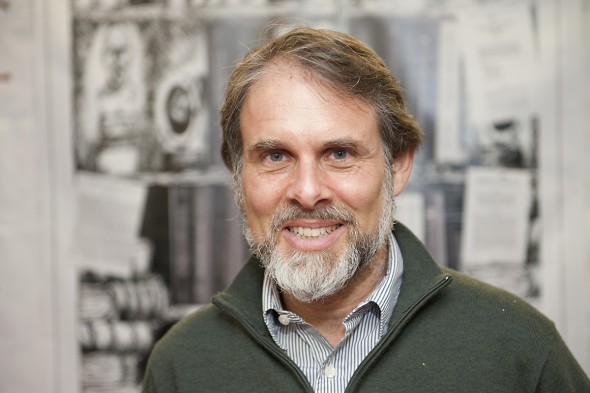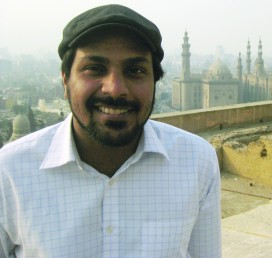Conference considers impact of religious law

“Shari’a and Halakha in America” conference co-organizer Samuel Fleischacker. Photo: Roberta Dupuis-Devlin/UIC Photo Services
Is religious law a threat to American democracy? Or vice versa?
These questions and the challenges faced — and presented — by the Islamic and Jewish legal systems in America today will be considered April 15 and 16 at “Shari’a and Halakha in America,” a conference hosted by the UIC Institute for the Humanities and IIT Chicago-Kent College of Law.
The conference on shari’a and halakha, the Islamic and Jewish systems of religious law, will examine contemporary challenges, how democracies can accommodate religious legal systems not originally grounded on democratic principles, and to what degree these religious systems can adapt to the standards of a liberal democracy.
Concerted efforts to discredit Islam in the U.S. could easily be turned against traditional Jewish law as well, said Samuel Fleischacker, professor of philosophy and conference co-organizer.
“This provides reason for Jews and Muslims to work together against the threat to shari’a,” he said.
“It also provides an opportunity, at a time of considerable tension between Jews and Muslims on other issues, for them to learn more about one another.”
Both sides have much in common as religious minorities in America, added Junaid Quadri, conference co-organizer and Modern Islamic law scholar.
“The primary message to all is that adherents of Judaism and Islam belong to old and venerable intellectual traditions which welcome discussion and debate, and indeed depend on it to retain their vitality and reference in a quickly changing world,” said Quadri, who will join UIC in August as assistant professor of history.
Participating speakers include professors of law and religion — some of whom have served on Jewish or Muslim courts — as well as journalists and activists.
Michael Broyde, professor of law and a senior fellow at the Center for the Study of Law and Religion at Emory University, will speak on “Suggestions for Shari’a Courts Based on the Precedent of the Beth Din of America.” His talk is the keynote address April 15 at IIT Chicago-Kent, 565 W. Adams St.
The second keynote address, “Religious Law, Family Law and Arbitration,” will be presented April 16 at the UIC Institute for the Humanities, lower level of Stevenson Hall, by Mohammed Fadel, University of Toronto associate professor of law.
Admission is free for the conference, which is sponsored by the UIC Jewish-Muslim Initiative, the UIC Institute for the Humanities and IIT Chicago-Kent College of Law. For more information, call 312-996-6354.

